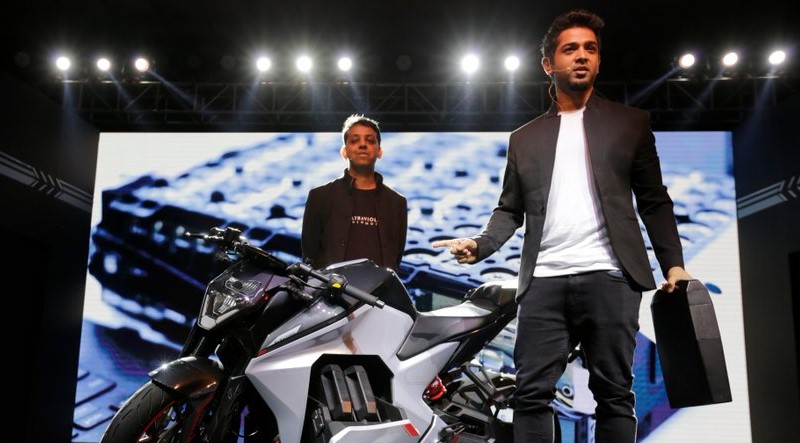Ultraviolette Automotive, a new-age Indian electronic vehicle startup will be setting up its first manufacturing facility in Bengaluru. The production of its high-performance electric motorcycle – the F77, will begin in Q1, 2022 and the first batch of motorcycles will be rolled out in the market in March 2022. The company dubs F77, named after the founder’s fascination with the fighter jets as the first performance-oriented electric bike of the country.
Narayan Subramaniam, Founder, and CEO of, Ultraviolette earlier worked as an automobile designer at Volkswagen, Germany and later came back to India to set up his new company.
Whilst talking about the new facility in Bengaluru Subhramaniam remarked, “This is an important milestone for us in our journey towards building a superior EV experience for India and International markets. We chose this location given its strategic proximity to our R&D facility in Bengaluru as well as a strong supply-chain ecosystem in and around the region.”
He further added, “We have received an overwhelming response for the F77 and this facility will help us cater to that demand over the next few years. Most importantly, the F77 has been designed and built indigenously and over 90% of the vehicle including the battery packs, will be manufactured using locally sourced components.”
Ultraviolette has set an ambitious target of furnishing 15,000 units of the electric bike by the end of 2021. However, the ultimate goal for the company is to produce around 1.2 lakh units per year. The company claims that it will begin pre-orders for the electric motorcycle later this year.
The introduction of PLI scheme in auto sector
The company is starting its manufacturing set up at just the right time when the government a few days ago launched another iteration of the Production Linked Incentive (PLI) scheme worth Rs 26,000 crore for the auto sector. The scheme will boost the production of electric vehicles and hydrogen fuel vehicles in the country.
This is the second PLI scheme in the sector as the government had earlier launched the scheme for Advanced Chemistry Cell (Rs 18,100 crore) and Faster Adaption of Manufacturing of Electric Vehicles (Rs 10,000 crore).
The inclusion of a PLI scheme of this magnitude, combined with existing schemes like FAME, multiple state subsidies, and the ACC scheme provides a direct financial incentive for the brands and an indirect one in the form of investments that such a scheme is likely to invite. According to the government, it expects the PLI scheme to bring in investments of Rs 42,500 crore.
F77 – a class apart
While other electric bikes in the segment have the customary slender design and low power, F77, right off the bat looks like a beast when traversing the tarmac. Powered by an air-cooled brushless DC (BLDC) motor, the bike promises a power output of 25 kW (33.5 bhp) for a claimed top speed of 147 kmph. The acceleration is clocked to be 0 to 60 kmph in 2.9 seconds and 0 to 100 kmph in 7.5 seconds, thanks to the bike’s 450 Nm of torque.
Auto Car in its review of the bike remarked, “The Ultraviolette promises exciting performance for the urban jungle and it’s also going to be a complete tech fest. And, of course, there’s the way it looks,”
TVS as an investor
The confidence in the success of the product can be gauged by the fact that TVS Motor Company, in September last year, invested Rs 30 crore as part of Series B round of funding for the startup, which incidentally was the second investment made by TVS in Ultraviolette.
With Ola, Ather, and other big companies jumping into the increasingly saturated EV market, Ultraviolette has stiff competition. However, the company, started by techies, Narayan Subramaniam, Preetham Murthy, and Niraj Rajmohan is confident about its prospects with the USP being the bike’s out-of-the-box design and sheer power.
The startup was founded in 2014 when PM Modi embarked upon the Make-In-India campaign, and seven years down the line, it is Indian companies that are leading the charge in the EV segment.
